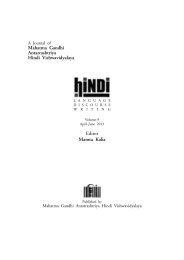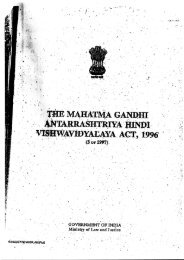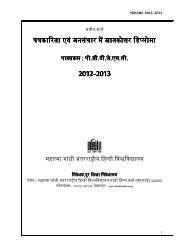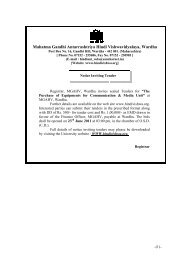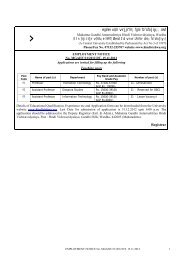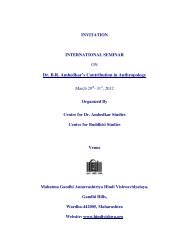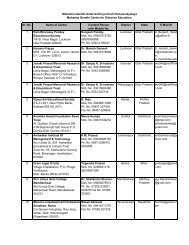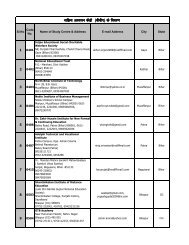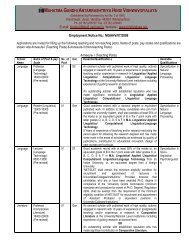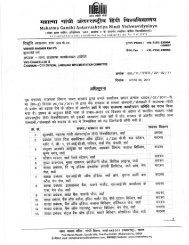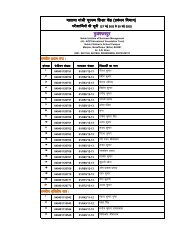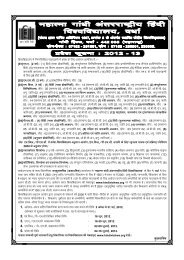Mamta Kalia
Mamta Kalia
Mamta Kalia
You also want an ePaper? Increase the reach of your titles
YUMPU automatically turns print PDFs into web optimized ePapers that Google loves.
quite opposite to them. This has only<br />
increased the alienation of Uttarakhand’s<br />
people from the state at the national<br />
level. This is also clear from this increasing<br />
loss of confidence of Uttarakhand’s people<br />
in the national parties and organizations<br />
which have their roots in the national<br />
movement. This is also responsible for<br />
its passing under the influence of political<br />
and social ideologies which are either<br />
revivalist, (anti-equity and anti-social<br />
reform) that are busy in pushing the<br />
country backwards into the centuries<br />
of mediaeval mentality or are driven<br />
by isolationist impulses which see<br />
Uttarakhand’s future only in cutting it<br />
away from the nation’s mainstream.<br />
If today politics in Uttarakhand<br />
appears to be entering sometimes a dark<br />
tunnel the responsibility mainly is that<br />
of the national forces which during the<br />
past decades have not tried to understand<br />
the problems of the country’s backward<br />
regions through a continuous dialogue<br />
with their people and with real, committed<br />
local representatives on the basis of a<br />
scientific study and research. Nor has<br />
it made an honest effort to work out<br />
a suitable plan of action to resolve the<br />
problems and act on it faithfully. Impelled<br />
by the politics of power, the national<br />
parties have engaged most of the time<br />
in turning these backward areas into<br />
their “vote banks” and, some of them<br />
in the name of raising teams of local<br />
political workers, and using muscle and<br />
money, and political manipulations have<br />
given birth to a class of corrupt and<br />
characterless persons who can act as<br />
middlemen and touts between various<br />
sections of the population and its leaders.<br />
People’s anger is centred on these<br />
middlemen and touts who, without any<br />
service to the people, hard work or<br />
contribution in the technical field, have<br />
emerged as the “novex riche” and, on<br />
the basis of their newly-acquired wealth,<br />
strength and power, have been<br />
dominating the people.<br />
In the same way there have emerged<br />
in the economic field powerful elements<br />
whose prosperity has not resulted from<br />
any real effort on their part to modernize<br />
agriculture or industry. These elements<br />
have become rich by misusing the<br />
subsidies and facilities given under the<br />
government’s Five-Year Plans. In their<br />
malpractices, exploitation of labourers<br />
engaged in road building under various<br />
contracts through underpayment of<br />
wages, and in the name of establishing<br />
new industries, resorting to practices<br />
that have been described as “black<br />
economy”, figure prominently. Reckless<br />
cutting down of trees and illegal trading<br />
of the other physical and human resources<br />
of the hills are also included in their<br />
repertory of malpractices. This “new rich”<br />
class has become fully dominant on the<br />
economy, society and politics of the<br />
region. This new class has developed<br />
such deep overt and covert links with<br />
prominent politicians of the state and<br />
its administration that because of them<br />
the state, too, has lost whatever of the<br />
old prestige it had been able to retain<br />
April-June 2010 :: 43



